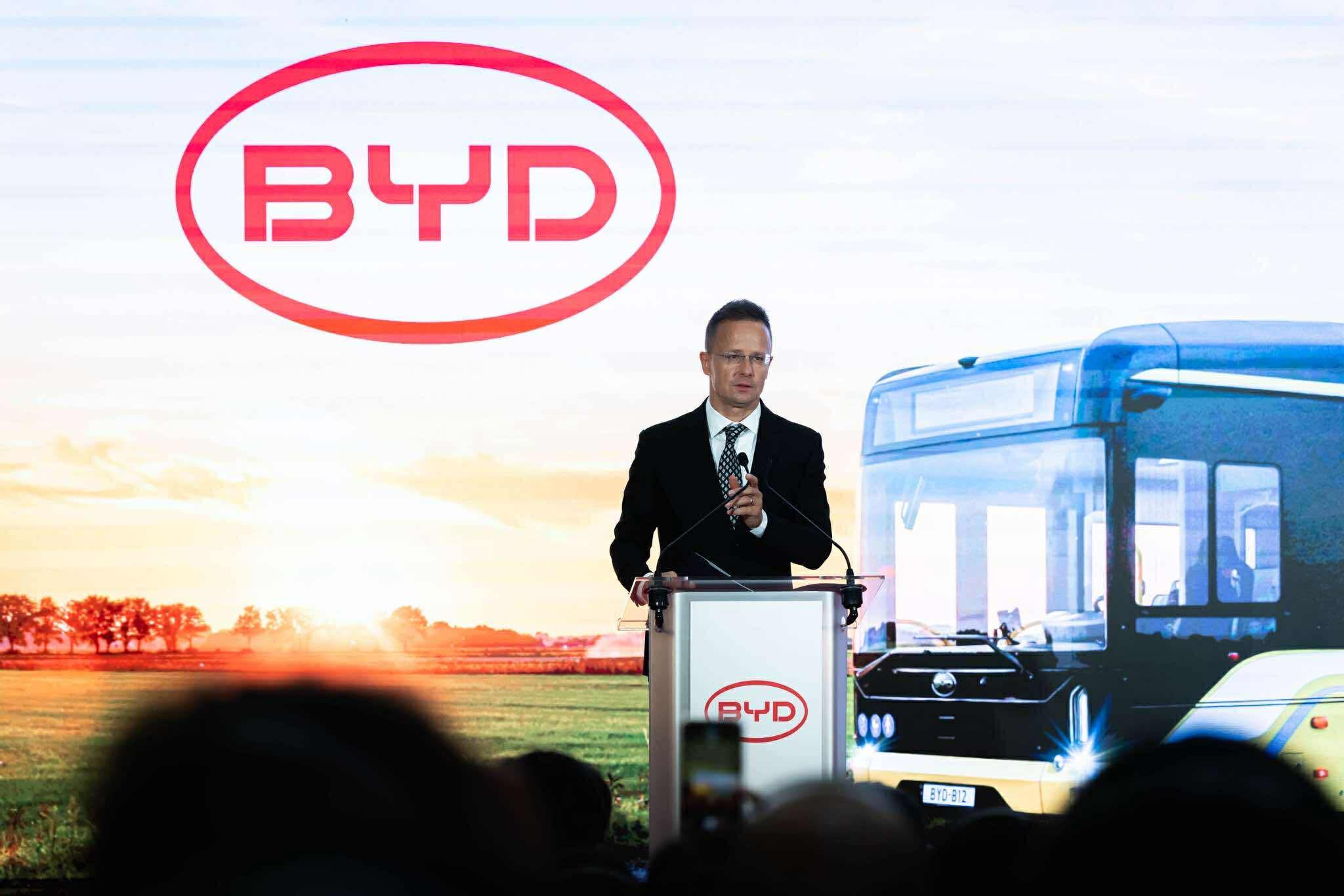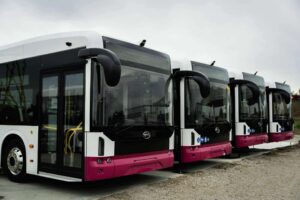
Starting this fall, the company will supply the Szeged plant from Linz.Continue reading

Chinese company BYD is investing 32 billion HUF (80.25 million EUR) in a new electric bus manufacturing plant in Komárom, which will create 620 new jobs, announced Péter Szijjártó, Minister of Foreign Affairs and Trade, on Friday in Komárom (northwestern Hungary).
The project will result in the establishment of a research and development test laboratory, and the plant’s capacity will triple, enabling it to produce a total of 1,250 electric buses and trucks per year.
In his speech, he emphasized that BYD is a rapidly expanding company, with a 40 percent increase in vehicle sales in the first five months of this year, meaning that Hungary has jumped on a fast train that many in Europe are trying to catch.
The expansion of BYD’s activities provides an opportunity for Hungary to remain a European leader in the most modern sector, which is the backbone of the European economy, namely electric vehicle manufacturing,”
he emphasized.
He also recalled that BYD had announced three major investments in Hungary in the space of a year and a half, with the company starting construction of its first European car factory in Szeged then decided to move its European headquarters and research and development center to Budapest, and now it is starting construction of this new bus manufacturing plant in Komárom.
“We had to compete very hard for all three investments. And we competed with Western European countries for all three investments. So there is an incredible hypocrisy here when Western European politicians talk about the need to distance ourselves from China and dismantle European-Chinese economic cooperation, while in the background we are constantly competing with them for these Chinese investments,” he said. “Today, these investment competitions are so fierce that some people are resorting to morally questionable means. You usually see this in the form of fake news stories in the Hungarian press about how and why Chinese investments are failing in Hungary. The sad thing about this, of course, is that Hungarian journalists and politicians are also lining up to represent foreign interests,” he added.
Péter Szijjártó emphasized that the recent period has been marked by one crisis after another, and that there is also a serious problem in politics, with some players wanting to divide the world into blocs again, which would be in sharp contrast to Hungary’s national interests. The government therefore advocates connectivity and global cooperation based on mutual respect.
And we Hungarians see East-West cooperation not as a threat, but as an opportunity, and a great opportunity at that. It should also be clearly recognized that Hungary has benefited greatly from East-West cooperation so far,”
he noted.
He pointed out that Chinese companies now constitute one of the largest investor communities in the country and bring the most modern technologies to Hungary. He called it a huge achievement that in 2023, 44 percent of Chinese investments in Europe will go to Hungary, compared to 31 percent last year.

Photo: Facebook/Péter Szijjártó
“In ten years, the Hungarian government has provided support for 64 major Chinese investments. These Chinese investments represent a total investment of 5,500 billion HUF (13.79 billion EUR) here in Hungary, creating 30,000 new jobs,” he said.
The Minister finally touched on the spectacular recent development of Komárom, pointing out that the city has become an investment destination in Hungary that plays a role in the national economy far greater than its size and population would suggest. He explained that one of the main economic engines of the Transdanubia region had been created here, as evidenced by the fact that the industrial output of the Komárom-Esztergom county had tripled over the past fifteen years, exceeding 5,500 billion HUF last year (12.54 billion EUR), while unemployment had fallen by half. He emphasized that this was partly due to the fact that the state had provided support for 141 investments locally over the past ten years. He also thanked BYD’s leaders for confirming the validity of the government’s objective that Chinese companies establishing production in Hungary for the first time should, after reaching a critical mass, continuously improve their technological standards, set up research and development centers, and then relocate their service functions here, as is currently the case.
Via MTI; Featured photo: Facebook/Péter Szijjártó